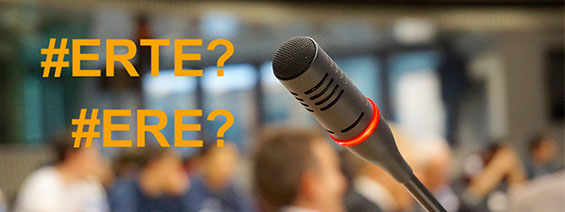CORONAVIRUS COVID-19: Traveler Restrictions, issuance of Visas / permits, Quarantines and other measures
Referring to the special times that we have to live in which different countries have implemented specific containment measures: Restrictions on the entry and exit of travelers (nationals, residents or foreigners), Issuance of visas and work / residence permits, Establishment of mandatory quarantine periods and other measures for managing the health crisis situation caused by COVID-19. I send a bulletin with the latest updates on risk containment measures and prohibitions taken by countries.
Last alert update: 30/11/2020

European Union
Travel and Ticket Restrictions: As of July 1, Member States Schengen and Associated States are recommended to lift temporary restrictions on non-essential travel in the EU and to gradually lift travel restrictions at borders abroad for residents of the following third countries: Algeria, Australia, Canada, Georgia, Japan, Montenegro, Morocco, New Zealand, Rwanda, Serbia, South Korea, Thailand, Tunisia, Uruguay, China, subject to confirmation of reciprocity. Residents of Andorra, Monaco, San Marino and the Vatican / Holy See must be considered as residents of the EU
Exceptions to travel restrictions: EU citizens, relatives of EU citizens as well as long-term residents, are exempt if they find themselves returning to their countries of residence within the EU. EU member states will admit, to the extent possible, their own nationals, nationals of other EU states and third-country nationals who regularly reside in that Member State.
UK citizens: UK nationals should be given the same treatment as all other EU citizens until the end of the Brexit transition period (12/31/2020)
Visa expiration: Schengen states must accept and process visa applications for exempt categories of travelers. Travelers who are within the Schengen territory and who have Schengen visas or visa exceptions may remain requesting the extension of their legal stay up to the limit of 90 days within a period of 180 days. In the event that the situation extends and they must remain beyond 90/180 days, they must request the regularization of their stays by means of the corresponding permission according to each Member State.
Containment / prevention measures: Each member state may apply quarantine or similar measures when applying to enter the territory of that state. All persons (from both EU / Schengen partner countries and third countries) crossing borders to enter the Schengen area are subject to systematic checks, which may include health checks, at border crossing points.
* This information alert may undergo changes and alterations that are unpredictable in a world health crisis scenario such as the current one, the restrictions established by the countries / regions may be tightened or relaxed at any time in order to prevent the spread of the virus (taking into account tells that the situation is dynamic with constant changes). In case of need of displacement we recommend the confirmation of the measures in force before the official authorities of each country.
** Any traveler from areas affected by the COVID-19 outbreak may be exposed to additional health checks, medical check-ups, quarantine periods, or entry bans.
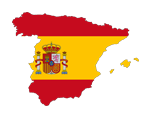
Spain
Travel Restrictions and Entry into the country: Entry into the country is permitted from countries EU associated states, Schengen, and the United Kingdom. Cross-border and temporary workers from countries that have closed their borders with Spain are prohibited from entering the country.
Measures of containment and prevention: Foreigners must compete the Spain Travel Health (SpTH) 48 hours before travelling. There is no mandatory quarantine unless the health authorities specifically request it. Travellers are subject to a temperature control and visual health evaluation. All travellers arriving from countries qualified as “high-risk” as defined by the Ministry of Foreign Affairs are required to present a negative PCR COVID-19 test. The list is updated every 15 days and can be consulted here. The test cannot be older than 72 hours old and the results must be in Spanish or in English. All travel must take place with a mask.
Expiration of Visas: Travellers who find themselves within Schengen and that have Schengen visas or exceptions to the visa may remain requesting an extension of their legal stay until a 90-day limit within a period of 180 days. In the case that the situation is extended, and they must remain more than the 90/180 days, they should apply for a legalization of their stay by means of the corresponding permit according to the Member State.
Documents, DNI, driver’s license, authorizations and residency permits:
- DNI: DNIs that expire during the State of Emergency are automatically renewed for one year (13/03/2021).
- Driver’s licenses that expire during the State of Alarm and its subsequent extensions, are automatically extended as long as the state of alarm remains and for seventy days after the conclusion.
- Foreign Licenses: The 6 months that holders of non-EU driving licences can drive here maximally, will be suspended for the duration of the State of Alarm.
- Vehicle administrative authorizations that expire during the State of Alarm are automatically extended for up to 60 days after it ends
Foreign Citizens
- Residency authorizations and other authorizations for foreigners: The state of alarm declared on March 14 by Royal Decree 463/2020, as a means of managing the health crisis produced by COVID-19, has made it impossible for the presentation of applications for renewal of: authorizations for residency, work, stays and visas. This, in addition to the suspension of the administrative statues of limitations and expirations, has created uncertainty among foreigners who’s documents expired during the state of emergency.
- The laws of immigration establish that all foreigners must renew their authorization of residency and/or work when this is temporary. They may also apply for an extension of their authorization for studies, student exchanges, internships or volunteer work depending on the case. However, due to the health emergency, automatic extensions have been implemented with regards to the validity of authorizations to stay, live and/or work, and other situations for foreigners in Spain.
The general rules establish that:
- The extension is automatic for during the State of Alarm or for those that expired during the 90 days before March 14, 2020. This extension comes into effect the day after the expiration of the authorization.
- The validity of the extended document will be for the following six months after the State of Alarm.
- The validity of the extended documents will not be the same for all. Depending on the case it will be three to six months after the end of the State of Alarm.
That said, we will now specify the conditions applicable to each type of document and the situation of the foreigner in Spanish territory.
* This information alert may undergo changes and alterations that are unpredictable in a world health crisis scenario such as the current one, the restrictions established by the countries / regions may be tightened or relaxed at any time in order to prevent the spread of the virus (taking into account tells that the situation is dynamic with constant changes). In case of need of displacement we recommend the confirmation of the measures in force before the official authorities of each country.
** Any traveler from areas affected by the COVID-19 outbreak may be exposed to additional health checks, medical check-ups, quarantine periods, or entry bans.

France
Travel and Ticket Restrictions: Entry restrictions to Shengen countries are lifted. Beginning July 1, the borders will gradually open to third countries
Travelers who are exceptionally allowed to travel to France must complete an international travel certificate / declaration in order to be presented to the airline and authorities at the border post, in order to make trips or transit through French territory. If you stay in France for more than 48 hours, you must undergo a 14-day quarantine.
Visas, Authorizations and Residence Permits: Residence and work permits that expire between 03/16 and 05/15, already extended for 90 days from the expiration date, extend for 90 more days (a total of 180 days from the date of expiration). Residence and work permits that expire between 05/16 and 06/15 extend for 180 days from the expiration date. Holders of short-term visas that are about to expire and cannot return to their country of origin can, in justified urgency, have a short-stay visa extension of up to 90 days.
Workers with the nationality of an EU member state (including the United Kingdom) can enter and work in France. To cross the border. The posted worker must have an international travel certificate, which includes a declaration of absence of symptoms of COVID-19 infection.
The issuance of visas of all kinds is suspended until further notice.
Containment / prevention measures: Foreigners from outside the EU and Schengen countries are subject to a mandatory 14-day quarantine, even if they are asymptomatic. Quarantine is voluntary for travelers from Spain by plane and for travelers from the United Kingdom.
* This information alert may undergo changes and alterations that are unpredictable in a world health crisis scenario such as the current one, the restrictions established by the countries / regions may be tightened or relaxed at any time in order to prevent the spread of the virus (taking into account tells that the situation is dynamic with constant changes). In case of need of displacement we recommend the confirmation of the measures in force before the official authorities of each country.
** Any traveler from areas affected by the COVID-19 outbreak may be exposed to additional health checks, medical check-ups, quarantine periods, or entry bans.

Algeria
Travel Restrictions and Entry into the country: All international connexions via airway, maritime or terrestrial continue to be suspended as of last March 19, 2020 and continue until further notice. Air travel for trade continues to be operational.
The only permitted entry into the country is for those repatriated Algerians who, after their arrival, must submit to a 14-day quarantine in a designated hotel or accommodation of their choosing by decision of the local health authorities.
Visas, Authorizations and Residency Permits: The Ministry of Work continues to suspend all applications and processes for the requests for work permits, including the renewal of said permits. All renewable visas have been extended by 30 days for all foreign citizens who find themselves in the country due to the pandemic and due to the closure of the airspace.
* This information alert may undergo changes and alterations that are unpredictable in a world health crisis scenario such as the current one, the restrictions established by the countries / regions may be tightened or relaxed at any time in order to prevent the spread of the virus (taking into account tells that the situation is dynamic with constant changes). In case of need of displacement we recommend the confirmation of the measures in force before the official authorities of each country.
** Any traveler from areas affected by the COVID-19 outbreak may be exposed to additional health checks, medical check-ups, quarantine periods, or entry bans.

Germany
Travel Restrictions and Entry into the country: Entry into the country is permitted for travellers coming from European countries (including member states of the European Union), Australia, Canada, China, Georgia, Japan, Montenegro, New Zealand, South Korea, Thailand, Tunisia, and Uganda. Travellers from China, Japan, and South Korea are permitted provided they provide reciprocal permission for entry of German nationals.
Entry of foreign travellers from third countries (not EU or Schengen) continues to be suspended unless it is to carry out an important and justified function. German nationals can continue to enter German territory.
Visas, Authorizations and Residency Permits: The expiration of residency permits will not be penalized as long as the emergency situation persists, however, only those who hold a valid visa will be permitted to leave and re-enter the country.
The entry of travellers from outside the European Union is limited to the sectors considered essential by the European Commission.
Those with expired Schengen visas who find themselves in Germany cannot return to their country of origin, are not permitted to remain in Germany. They are now required to apply for a residency permit.
Foreign residents may extend their permits presenting a request for extension (online or via fax) before the expiration of the permit. The services in the offices for foreigners in Berlin are ONLY providing services by appointment. The offices of immigration in other cities gradually reopen and are currently only providing emergency services by appointment.
Measures of containment and prevention: Foreigners who travel for reason of studies or business (for stays of up to five days) are exempt from quarantine provided they submit to a PCR test for COVID-19 upon arrival in Germany or if they present a negative test taken 48 hours before entering the country. Travellers who return from countries considered risk, will be examined in the airport. Those refuse to submit to the test or who have a positive result will be required to spend 14 days in quarantine. Foreigners who come from countries of the EU and from Iceland, Liechtenstein, Norway, Switzerland and the United Kingdom are not subject to this requirement.
* This information alert may undergo changes and alterations that are unpredictable in a world health crisis scenario such as the current one, the restrictions established by the countries / regions may be tightened or relaxed at any time in order to prevent the spread of the virus (taking into account tells that the situation is dynamic with constant changes). In case of need of displacement we recommend the confirmation of the measures in force before the official authorities of each country.
** Any traveler from areas affected by the COVID-19 outbreak may be exposed to additional health checks, medical check-ups, quarantine periods, or entry bans.

Saudi Arabia
SAUDI ARABIA
Travel Restrictions and Entry into the country: All flights entering and exiting Saudi Arabia are suspended until after January 1, 2021. The exact date for the lifting of the suspension on entry and exiting the country will be announced 30 days before January 1, 2021. The entry of travellers who have been in Argentina, Brazil, or India in the previous 14 days or arrival in Saudi Arabia is suspended.
Entry is permitted to those citizens and residents who have: work or residency visas; Saudi citizens who are government employees or diplomats; business travel; patients who need treatment in a foreign country; certain student categories; participants in official sporting events both regional and international.
Visas, Authorizations and Residency Permits: Saudi Consulates and Embassies continue to be closed to the public until further notice. New applications for residency permits will not be accepted or processed until further notice. Renewals can be completed online.
If the holder of a residency permit finds themselves outside of Saudi Arabia, and therefore cannot renew their permit, they will have an automatic extension of 90 days. Holders of a re-entry visa, including visas for business visits and work visits can continue to enter the country provided they have not visited any countries affected by COVID-19 in the previous 14 days. Holders of a visas for business, tourism, medical treatment, commerce, or family visits can request an extension of the visa with the payment of a fee.
Measures of containment and prevention: Foreign travellers above the age of 8 must provide a negative PCR test taken 72 hours before travel. All travellers must complete and sign an exemption of health liability and are subject to a two day self-quarantine at their home. All travellers must download and register the application Tatamman, assigning the location of the house within the first 8 hours of arrival and daily inform the application about the state of their health.
* This information alert may undergo changes and alterations that are unpredictable in a world health crisis scenario such as the current one, the restrictions established by the countries / regions may be tightened or relaxed at any time in order to prevent the spread of the virus (taking into account tells that the situation is dynamic with constant changes). In case of need of displacement we recommend the confirmation of the measures in force before the official authorities of each country.
** Any traveler from areas affected by the COVID-19 outbreak may be exposed to additional health checks, medical check-ups, quarantine periods, or entry bans.

Argentina
Travel Restrictions and Entry into the country: Scheduled international flights are permitted, subject to the approval of the Administration of Civil Aviation Navigation (ANAC).
All travellers must present a negative PCR COVID-19 test taken within 72 hours before traveling and proof of medical insurance for COVID-19, that covers hospitalization or confinement during the entirety of the stay in Argentina. Additionally, they must present an Electronic Affidavit filled out within 48 hours before arrival.
Internal travel within the country is restricted.
Visas, Authorizations and Residency Permits: The expiration of documents is extended automatically for 90 days from the expiration date. Residency documents issued by the Office of Immigration, that expire after the March 17, will automatically be extended to December 17. The immigration authorities have begun to approve special entrance permits for foreigners, non-residents who are essential workers. However, the issuing of visas is at the discretion of the corresponding consulate, who can deny the visa, even those backed by a special entry permit.
Measures of containment and prevention: all Argentinian travellers or residents who enter or re-enter Argentinian territory will be submitted to health controls and must do a 14-day quarantine. This period of mandatory quarantine has been extended to November 29. All travellers arriving in Argentina must download an app developed by the Ministry of Health for a quick verification regarding symptoms of COVID-19.
* This information alert may undergo changes and alterations that are unpredictable in a world health crisis scenario such as the current one, the restrictions established by the countries / regions may be tightened or relaxed at any time in order to prevent the spread of the virus (taking into account tells that the situation is dynamic with constant changes). In case of need of displacement we recommend the confirmation of the measures in force before the official authorities of each country.
** Any traveler from areas affected by the COVID-19 outbreak may be exposed to additional health checks, medical check-ups, quarantine periods, or entry bans.

Brazil
Travel Restrictions and Entry into the country: Entry of international flights is permitted at all airports. Entry via maritime or terrestrial means continues to be suspended for all foreign nationals regardless of nationality. However, there are certain restrictions: entry via aerial means up to 90 days for foreign travellers regardless of nationality provided they meet the immigration requirements, including possession of an entrance visa (if necessary).
Visas, Authorizations and Residency Permits: The General Office of Labour Migration has once again resumed processing. This means that they are once again receiving documents to process residency permits.
Starting on November 3, immigration documents that expired before the March 16, 2020 will be accepted for entry and registration until March 16, 2021. Documents that expired after March 16, 2020 will also be accepted until March 16, 2021.
Temporary entrance visas will be accepted for new entry, even if it is not registered, if the visa is still valid or if its validity has been extended by the Ministry of Foreign Affairs. In these cases, the Temporary Entrance Visa must be registered before March 16, 2021. In the case of re-entry, the visas should be registered within 90 days of the re-entry.
Measures of containment and prevention: There are health and safety protocols in place in airports, including temperature controls. Some municipalities have curfews or regulated closing times. The use of masks is mandatory in all public spaces. There is no mandatory quarantine, however, the Brazilian government recommends a self-quarantine of 15 days for those who have experiences symptoms of COVID-19.
* This information alert may undergo changes and alterations that are unpredictable in a world health crisis scenario such as the current one, the restrictions established by the countries / regions may be tightened or relaxed at any time in order to prevent the spread of the virus (taking into account tells that the situation is dynamic with constant changes). In case of need of displacement we recommend the confirmation of the measures in force before the official authorities of each country.
** Any traveler from areas affected by the COVID-19 outbreak may be exposed to additional health checks, medical check-ups, quarantine periods, or entry bans.

Chile
Travel Restrictions and Entry into the country: Beginning on November 23, foreigners, non-residents, may enter Chile. All foreign citizens must have a negative COVID-19 test. The PCR must be taken 72 hours before the trip. Health insurance that covers COVID-19 is necessary as well as a health passport.
Visas, Authorizations and Residency Permits: Residency Permits for foreign nationals, residing in the country receive an automatic extension on the expiration of their visas, extended until 31 December 2020 (for all those that expire in 2019) and one year from the expiration date for all those that expire in 2020. Work and residency visas (on request) are available for: Argentina, Australia, Bolivia, Brazil, Canada, Chile, France, Germany, Italy, Japan, New Zealand, South Korea, Spain, United Kingdom and United States of America. Some Chilean consulates have begun accepting visa requests. All the immigration processing and services must be done online.
Measures of containment and prevention: All foreigners who come from a “high communal circulation” of COVID-19 are subject to 14 days of self-quarantine.
Foreigner residents and Chilean citizens who travel or return to Chile are exempt from the requirement to present a negative test result if they submit to a 14-day self-quarantine. If they receive a negative test result during quarantine, they are permitted to leave self-isolation early.
* This information alert may undergo changes and alterations that are unpredictable in a world health crisis scenario such as the current one, the restrictions established by the countries / regions may be tightened or relaxed at any time in order to prevent the spread of the virus (taking into account tells that the situation is dynamic with constant changes). In case of need of displacement we recommend the confirmation of the measures in force before the official authorities of each country.
** Any traveler from areas affected by the COVID-19 outbreak may be exposed to additional health checks, medical check-ups, quarantine periods, or entry bans.

Colombia
Travel Restrictions and Entry into the country: International travel has resumed for all entering travellers. Starting November 5, a negative COVID-19 test will no longer be necessary to enter the country.
Visas, Authorizations and Residency Permits: Visa processing has resumed, however, the presentation of Visa Applications in the consulates continues to be suspended. The Ministry of Foreign Affairs will accept Visa applications for their subsequent processing and approval electronically, however, there will be no passport stamp. Permits to enter and stay that expired during the health emergency and until November 30, 2020, will automatically be extended for a month after this period.
Measures of containment and prevention: Passengers who enter the country must fill out an immigration form, Check-Mig from Colombian Migration and must follow other protocols upon arrival. Those who experience symptoms during the 14 days after arrival must inform the health authorities.
14-day quarantine is required for travellers (residents and citizens of Colombia) who in the previous 14 days had been in a high-risk country. Foreign travellers, including Colombians, must provide information of their trip and their current health status.
* This information alert may undergo changes and alterations that are unpredictable in a world health crisis scenario such as the current one, the restrictions established by the countries / regions may be tightened or relaxed at any time in order to prevent the spread of the virus (taking into account tells that the situation is dynamic with constant changes). In case of need of displacement we recommend the confirmation of the measures in force before the official authorities of each country.
** Any traveler from areas affected by the COVID-19 outbreak may be exposed to additional health checks, medical check-ups, quarantine periods, or entry bans.
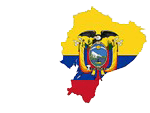
Ecuador
Travel Restrictions and Entry into the country: International flights have been resumed. Foreigners who arrive in the country must present a negative PCR COVID-19 test result. If the results were issued within the 10 days prior to travel, the traveller is not subjected to quarantine.
Visas, Authorizations and Residency Permits: The consular offices continue to be closed to the public and are only giving services online. The periods for absenteeism for foreign residents both temporary and permanent who find themselves outside of the country continue to be suspended. The periods for tourist and foreign residents (temporary and permanent) has been extended for the duration of the public health emergency. Nevertheless, once the end of the health emergency has been declared, foreigners will have 30 days to legalize their immigration status to avoid fines or penalizations.
Measures of containment and prevention: Quarantine is no longer mandatory for all those travellers, foreigners, or Ecuadorian nationals, who enter the country. Those who have not presented a negative COVID-19 test must submit to self-isolation. In this case, they must submit to a COVID-19 test, assuming all costs, and must submit to self-isolation. All travellers must fill out an affidavit of health before their arrival.
* This information alert may undergo changes and alterations that are unpredictable in a world health crisis scenario such as the current one, the restrictions established by the countries / regions may be tightened or relaxed at any time in order to prevent the spread of the virus (taking into account tells that the situation is dynamic with constant changes). In case of need of displacement we recommend the confirmation of the measures in force before the official authorities of each country.
** Any traveler from areas affected by the COVID-19 outbreak may be exposed to additional health checks, medical check-ups, quarantine periods, or entry bans.

Australia
Travel Restrictions and Entry into the country: Australia has suspended all entries into the country for any foreigner. Entry is only permitted for Australian nationals and permanent residents. This measure has been extended until December 17, 2020.
Visas, Authorizations and Residency Permits: The offices for immigration continue to be operative. The requests can be sent in online and by post.
Those workers whose visas for temporary work are about to expire, and do not work in a essential sector, who cannot return to their home country due to entry restrictions, and who are not eligible for a different visa, may be eligible for the COVID-19 Pandemic Event visa.
Measures of containment and prevention: All travellers who enter the country are subjected to a 14-day quarantine in designated centres. Australian citizens and permanent residents continue to be prohibited from leaving the country due to COVID-19 restrictions. However, those who are required to leave Australia may request an exception to travel online.
* This information alert may undergo changes and alterations that are unpredictable in a world health crisis scenario such as the current one, the restrictions established by the countries / regions may be tightened or relaxed at any time in order to prevent the spread of the virus (taking into account tells that the situation is dynamic with constant changes). In case of need of displacement we recommend the confirmation of the measures in force before the official authorities of each country.
** Any traveler from areas affected by the COVID-19 outbreak may be exposed to additional health checks, medical check-ups, quarantine periods, or entry bans.

China
Travel Restrictions and Entry into the country: Entry to China is suspended for all foreign citizens, with the exception of those who possess certain visas, residency permits and business travel cards.
Visas, Authorizations and Residency Permits: Chinese businesses that require foreign essential workers to carry out urgent economic, commercial, scientific, or technological activity can request a letter of invitation for a category M visa. This visa has a maximum duration of 180 days. If the letter of invitation is approved and issued (in limited circumstances), the foreign worker can request the category M visa at the corresponding Chinese consulate.
Foreign citizens who travel to China for economic, commercial, and scientific reasons, technological activity, or emergency humanitarian needs, may request a visa at the Chinese embassy or consulate.
Foreigners in Shanghai who’s visas or residency permits have expired during the period of control of the epidemic, have an automatic extension of two months of the visa or residency permit.
All visa waiver programs are suspended until further notice.
All procedures have been completely moved online, therefore; all physical presentation of documents has been suspended.
Measures of containment and prevention: The majority of entering travellers must undergo a PCR test and submit to a 14-day quarantine in the designated installations when arriving at the city of entry. The medical authorities have the power to discretionally request a medical examination of foreigners entering China. The expenses of quarantine are charged to the traveller. Additionally, all travellers will be submitted to rapid testing for COVID-19 before being sent to quarantine. Travellers who have scheduled travel are required to provide personal information regarding current health status and history before travelling.
* This information alert may undergo changes and alterations that are unpredictable in a world health crisis scenario such as the current one, the restrictions established by the countries / regions may be tightened or relaxed at any time in order to prevent the spread of the virus (taking into account tells that the situation is dynamic with constant changes). In case of need of displacement we recommend the confirmation of the measures in force before the official authorities of each country.
** Any traveler from areas affected by the COVID-19 outbreak may be exposed to additional health checks, medical check-ups, quarantine periods, or entry bans.

South Korea
Travel Restrictions and Entry into the country: Entry without visas for foreigners from countries that have imposed restrictions for the entrance of Korean citizens has been suspended.
Additionally, all short-term visas issued before April 5 have been suspended. However,
- This does not affect those who are already in Korea with this time of visa.
- All those who’s visas were nullified must reapply.
Foreigners with a short-term work visa (C-4) and long-term visas (for work, investment, study abroad) are exempt.
Holders of long-term visas must obtain a temporary re-entry permit before leaving the country; not having one will mean the cancellation of the visa. A medical certificate issued within the 48 hours before travel is also required to re-enter the country. Exemptions to this rule are those who hold diplomatic visas (A-1), public employees (A-2), international agreements (A-3), Koreans abroad (F-4), holders of long term visas who left the country before May 31 and those who obtained a “Certificate of Exception of Isolation” issued by an embassy or South Korean consulate.
The holders of short-term visas (B-1, B-2, C-1, C-3, C-4) that, due to cancelled flights, cannot leave South Korea before the expiration of their visa, must request a maximum extension of 30 days at the Immigration Office.
For holders of registered foreigners cards (ARC) that are currently in South Korea after April9 and who’s current expiration of the cart is between April 9 and May 31, 2020 have their visas automatically extended for 90 days starting the day of expiration.
-* Visas type C-4 (temporary work) and long-term are excluded.
Temporary Suspension of Visa Exemption Agreement. After April 13, the temporary suspension of the Agreement for visa exemptions.
– This means Spanish citizens who need to travel to Korea for an essential trip must request a visa.
-* This requirement is waved for those who have an official or diplomatic passport, crewmembers both of flights and boats, and holders of the ABTC card.
Visas, Authorizations and Residency Permits: More requirements to obtain a visa have been included. All citizens who want to apply for a visa (including those who had their visas annulled due to these measures) must obtain a medical certificate issued in the previous 48 hours. This certificate must prove that the person in question has not had any COVID-19 symptoms (fever, cough, chills, headaches, muscle pain, pneumonia, etc.)
Measures of containment and prevention: All travellers (regardless of nationality) are required to undergo a COVID-19 test taken within 72 hours prior to travel. They must also present their travel itinerary to the authorities during the application process.
Travellers with COVID-19 symptoms will be accompanied to an isolation facility to undergo further testing. If the results are positive the patients will be accompanied to designated hospitals or other medical facilities for treatment.
Airlines must check corporal temperatures before departure. To all travellers with a body temperature of above 37,5º C must be denied boarding.
MANDITORY QUARANTINE FOR ALL TRAVELLERS. However, one can request a certificate of quarantine exemption for important and urgent cases.
South Korean citizens and long-term travellers (who remain longer than 90 days) may quarantine in their own accommodations.
Foreigners who remain for short periods will be quarantined in specialized facilities. However, there are exceptions for travellers who arrive for important academic reasons, public benefit, or humanitarian work; these people will be under “active supervision”.
Those who find themselves in specialized facilities (both foreigners and Korean nationals) are required to pay for their stays.
* This information alert may undergo changes and alterations that are unpredictable in a world health crisis scenario such as the current one, the restrictions established by the countries / regions may be tightened or relaxed at any time in order to prevent the spread of the virus (taking into account tells that the situation is dynamic with constant changes). In case of need of displacement we recommend the confirmation of the measures in force before the official authorities of each country.
** Any traveler from areas affected by the COVID-19 outbreak may be exposed to additional health checks, medical check-ups, quarantine periods, or entry bans.
.
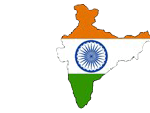
India
Travel Restrictions and Entry into the country: Entry in the country of foreign nationals has been resumed in India. Entry in the country for tourism continues to be suspended. All international passengers who arrive in India are required to submit to a 14-day quarantine, which normally will consist in seven days of quarantine at an institution followed by seven days of self-isolation in the residence of the traveller.
Visas, Authorizations and Residency Permits: The centres for visa applications and applications for electronic visas have been suspended until further notice. E-visas issued before March 11, 2020 to citizens of France, Germany or Spain have been suspended. Visas for all foreign citizens that were already in India continue to be valid.
All existing visas, except electronic visas (e-Visa), the tourist visa and the medical visa, which continue to be suspended, are resumed with immediate effect. If the validity of said visa has expired, the foreign citizen can obtain a new visa under the appropriate category/subcategory.
Measures of containment and prevention: Passengers who travel for less than 48 hours, are exempt from the COVID-19 test and quarantine. The travellers who travel for more than 48 hours, but less than seven days must present a negative PCR test at arrival. They are also exempt from quarantine. The PCR test must be taken with 96 hours before travel. At arrival all travellers must provide a declaration of information, medical revision and possible 14-day quarantine period.
* This information alert may undergo changes and alterations that are unpredictable in a world health crisis scenario such as the current one, the restrictions established by the countries / regions may be tightened or relaxed at any time in order to prevent the spread of the virus (taking into account tells that the situation is dynamic with constant changes). In case of need of displacement we recommend the confirmation of the measures in force before the official authorities of each country.
** Any traveler from areas affected by the COVID-19 outbreak may be exposed to additional health checks, medical check-ups, quarantine periods, or entry bans.
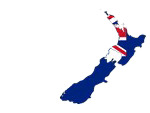
New Zealand
Travel Restrictions and Entry into the country: The entry of all foreign travellers who are not residents of New Zealand continues to be suspended. After June 18, entry in the country of a new category of “essential workers” was included. The must justify their position as a specialized technical worker. The applications are considered on a case by case basis.
Visas, Authorizations and Residency Permits: Holders of work visas that have been extended until September 25 or that expire before December 31 can be extended again for another six months. Most visas that expired between September 4 and October 31, have been extended for five months starting on their date of expiration. For holders of work visas that cannot enter or return to New Zealand, their visas continue to be valid until travel restrictions are lifted. All travel with visa exemptions for tourism and business are suspended.
Measures of containment and prevention: All travellers, including citizens and residents of New Zealand, must complete a 14-day quarantine or isolation in approved institutions upon arrival to the country. The arrivals considered high risk for COVID-19 will be put in quarantine institutions.
* This information alert may undergo changes and alterations that are unpredictable in a world health crisis scenario such as the current one, the restrictions established by the countries / regions may be tightened or relaxed at any time in order to prevent the spread of the virus (taking into account tells that the situation is dynamic with constant changes). In case of need of displacement we recommend the confirmation of the measures in force before the official authorities of each country.
** Any traveler from areas affected by the COVID-19 outbreak may be exposed to additional health checks, medical check-ups, quarantine periods, or entry bans.
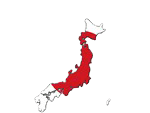
Japan
Travel Restrictions and Entry into the country: The entrance of travellers from any country that have in the previous 14 days visited a country at risk continues to be suspended until further notice. Citizens and those with residency status may return to Japan but they must present a negative PCR test taken within the 72 hours prior to departure.
Visas, Authorizations and Residency Permits: The Office of Immigration is accepting applications for the Certificate of Eligibility (CoE) for medium- and long-term stays. Visas issued before April 2, 2020 have been cancelled.
Measures of containment and prevention: The citizens of Japan, and foreign travellers who are permitted to enter the country, must submit to a COVID-19 PCR test (PCR/antibody test) and they are asked to submit to a 14 day quarantine in a designated place. This place can be any of the following: housing, business housing, family housing, friend’s house, monthly condominium, and hotels reserved by the traveller. They must abstain from using the transportation.
* This information alert may undergo changes and alterations that are unpredictable in a world health crisis scenario such as the current one, the restrictions established by the countries / regions may be tightened or relaxed at any time in order to prevent the spread of the virus (taking into account tells that the situation is dynamic with constant changes). In case of need of displacement we recommend the confirmation of the measures in force before the official authorities of each country.
** Any traveler from areas affected by the COVID-19 outbreak may be exposed to additional health checks, medical check-ups, quarantine periods, or entry bans.

Kuwait
Travel Restrictions and Entry into the country: International commercial flights have been approved to resume, starting August 1, with the gradual increase of passengers and flights per day. Entry of foreigners coming from countries considered high risk continues to be forbidden.
Visas, Authorizations and Residency Permits: Holders of tourist and residency visas expiring before August 31, 2020, have their visas extended to November 30, 2020. There is no necessary process or fee for the extension. Immigration offices are closed until further notice. The issuing of visas and work permits has been temporarily suspended until further notice.
Measures of containment and prevention: Passengers must present a negative COVID-19 PCR test that has been taken within 96 hours before departure. All visitors are subject to medical examinations and self-isolation for 14 days. For all those travellers who say in the country for less than 14 days must also quarantine upon arrival. Foreigners who enter Kuwait must instal the applications “Shlonik” and “Kuwait-Mosafer” on their personal devices.
* This information alert may undergo changes and alterations that are unpredictable in a world health crisis scenario such as the current one, the restrictions established by the countries / regions may be tightened or relaxed at any time in order to prevent the spread of the virus (taking into account tells that the situation is dynamic with constant changes). In case of need of displacement we recommend the confirmation of the measures in force before the official authorities of each country.
** Any traveler from areas affected by the COVID-19 outbreak may be exposed to additional health checks, medical check-ups, quarantine periods, or entry bans.

Kazakhstan
Travel Restrictions and Entry into the country: The entrance of foreign travellers for any country remains suspended until further notice with the exception of diplomats, permanent residents, holders of residency permits, employees of businesses considered critical, and citizens of those countries which Kazakhstan has resumed direct flights.
Visas, Authorizations and Residency Permits: The suspension of the scheme of extension of visas (driven by Kazakhstan and not others) is pushed until May 2021. Travellers who plan to travel during this time must request a visa. Foreign citizens who have a residency permit and their family members, as well as those foreigners who have Kazakhstanis family members, cannot enter Kazakhstan more than once every 90 days.
Visas, residency and work permits, and stays without visas that have expired are considered valid until January 5, 2021.
Measures of containment and prevention: Travellers who arrive in Kazakhstan and have visited: France, Germany, Iran, Italy, or Spain in the previous 14 days, must be isolated in hospitals designated for this purpose by local authorities. Travellers arriving from: China, South Korea, or Schengen countries, must self-isolate in their residency for 14-days. All foreign travellers must present a negative PCR COVID-19 test issued within 72 hours of departure or their boarding will be denied. They must also fill out a declaration of health upon arrival.
* This information alert may undergo changes and alterations that are unpredictable in a world health crisis scenario such as the current one, the restrictions established by the countries / regions may be tightened or relaxed at any time in order to prevent the spread of the virus (taking into account tells that the situation is dynamic with constant changes). In case of need of displacement we recommend the confirmation of the measures in force before the official authorities of each country.
** Any traveler from areas affected by the COVID-19 outbreak may be exposed to additional health checks, medical check-ups, quarantine periods, or entry bans.
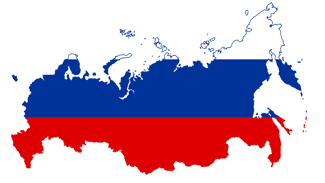
Russia
Travel Restrictions and Entry into the country: The prohibition to enter for foreigners is indefinitely extended, with suspension of international flights and closed borders. All borders remain closed. Commercial flights will gradually reopen; therefore, repatriation flights will no longer be operated. Only highly qualified specialists (HQS) approved by their respective Ministry and by the Federal Security Services and the Ministry of Interiors of Russia are granted entry. They must present a work permit and a letter of invitation for Highly Qualified Specialists (HQS), a work contract or the services to be provided. They will also be subject to a 14-day quarantine in their place of residence.
Visas, Authorizations and Residency Permits: Citizens and holders of residency permits from countries that have resumed direct flights with Russia can use their existing visas as well as request new ones.
Migration documents such as: all types of visas, migration cards, Temporary Residency Permits (TRP), Permanent Residency Permits (PTP), confirmation of refugee status, status of transferred persons, and participants in the state program for the relocation of compatriots living abroad; that expired between March 15 and December 15, 2020 are extended by 276 calendar days beginning on the date of expiration. This is not applicable to work permits for Highly Qualified Specialists (HQS), standard work permits, corporate work permits, and patents.
The Ministry of Interiors will accept applications for extensions for: work permits, visas and stays without visas for up to 90 days, including those that have already expired. Foreign citizens with expired visas after March 18, or that entered Russia without a visa, must request a 90-day extension in the local police precinct in Moscow.
The companies in Russia that possess or utilize foreign teams can request a letter of invitation so that those foreign specialists may enter the country with a visa of “technical assistance”. Businesses in Russia that have issued letters of invitation to foreigners to provide services under the visa of “technical assistance”, can present, if necessary, an application for a work permit (specialised or standard highly qualified) for foreign specialists.
Measures of containment and prevention: Foreign travellers must provide a negative PCR COVID-19 test taken within 72 hours prior to travel. Those that test negative are not required to quarantine. The certificate of the test must be in English or in Russian.
* This information alert may undergo changes and alterations that are unpredictable in a world health crisis scenario such as the current one, the restrictions established by the countries / regions may be tightened or relaxed at any time in order to prevent the spread of the virus (taking into account tells that the situation is dynamic with constant changes). In case of need of displacement we recommend the confirmation of the measures in force before the official authorities of each country.
** Any traveler from areas affected by the COVID-19 outbreak may be exposed to additional health checks, medical check-ups, quarantine periods, or entry bans.

Gustavo Duguech Torrente
Socio. HR Laboral Global Mobility
Tlf. 91 825 9253
If the health emergency of COVID-19 makes your company’s work activity unfeasible, you can file an ERTE (Temporary Employment Regulation File) due to Force Majeure or for economic, technical or production reasons. You know how to do it? Our team can advise you. I want more information…





